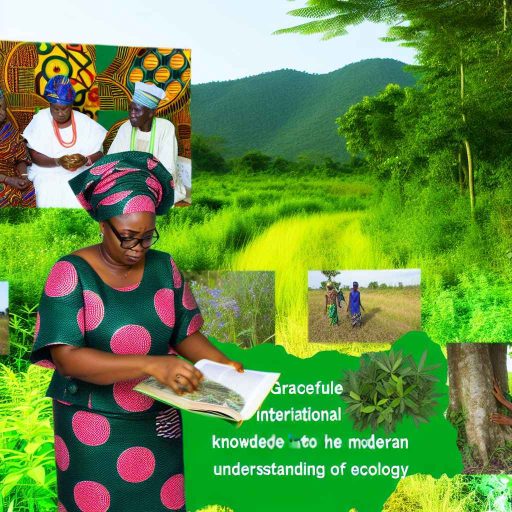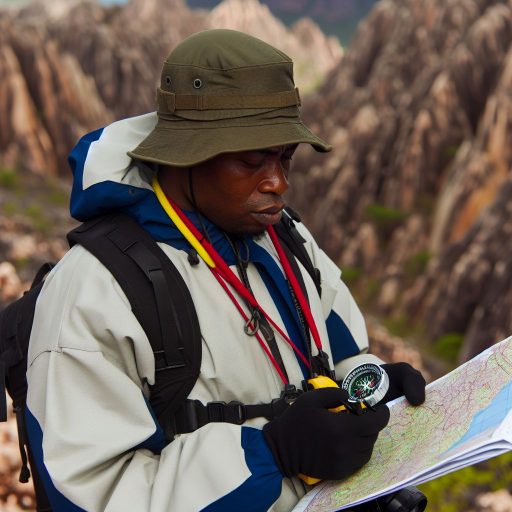Introduction
A brief overview of the state of marine life in Nigeria reveals a delicate ecosystem facing numerous challenges.
Marine life plays a crucial role in the ecosystem by contributing to biodiversity and supporting fisheries.
However, various environmental impacts such as pollution, overfishing, and habitat destruction are threatening the stability of marine life in Nigeria.
Pollution
Marine life in Nigeria faces various types of pollution that significantly impact their existence.
The most prevalent forms of pollution affecting marine life include oil spills, plastic pollution, and chemical pollution.
Types of Pollution Affecting Marine Life:
- Oil Spills: As a major oil-producing country, Nigeria experiences frequent oil spills in its coastal waters, leading to devastating effects on marine ecosystems.
- Plastic Pollution: The influx of plastic waste into Nigerian waters poses a grave threat to marine life, as plastic debris can be ingested by marine animals or entangle them.
- Chemical Pollution: Discharge of harmful chemicals from industries and agricultural runoff contaminates water bodies, affecting the health of marine organisms.
Effects of Pollution on Marine Life:
- Death: Pollution leads to the death of marine animals due to ingestion of toxic substances or entanglement in debris.
- Habitat Destruction: Pollution disrupts fragile marine habitats, such as coral reefs and mangroves, essential for the survival of many marine species.
- Reduced Biodiversity: Pollution causes a decline in the diversity of marine species, threatening the balance of marine ecosystems.
Efforts Being Made to Combat Pollution in Nigerian Waters:
Recognizing the urgent need to address pollution in Nigerian waters, various stakeholders have initiated efforts to combat this environmental menace.
- Regulatory Measures: The Nigerian government has enacted laws and regulations to control pollution from industries and prevent harmful practices in coastal areas.
- Community Involvement: Local communities are actively involved in cleanup activities and awareness campaigns to reduce pollution in their surrounding waters.
- International Cooperation: Nigeria collaborates with international organizations and neighboring countries to address transboundary pollution issues affecting marine ecosystems.
Pollution poses a significant threat to marine life in Nigeria, necessitating collective action to mitigate its adverse effects and preserve the rich biodiversity of Nigerian waters for future generations.
Overfishing
Overfishing is a critical issue that has significant impacts on marine life in Nigeria.
It occurs when fish are harvested at a rate faster than they can reproduce.
This leads to a decline in fish populations.
Overfishing can devastate marine ecosystems.
It disrupts food chains and threatens the survival of various species.
Depletion of commercially important fish stocks endangers the livelihoods of local communities that rely on fishing as a source of income.
Specific Examples of Overfishing in Nigerian Waters
- The Nigerian coastal waters have experienced overfishing of species like mackerel, tuna, and snapper due to high demand and inadequate regulations.
- Industrial fishing vessels often exceed their quotas and engage in illegal fishing practices, further exacerbating the problem of overfishing.
- Traditional fishing communities along the coast contribute to overfishing by using unsustainable fishing methods and targeting vulnerable species.
Solutions to Combat Overfishing and Protect Marine Species
- Implementing and enforcing strict regulations on fishing activities to prevent overfishing and protect vulnerable species.
- Encouraging sustainable fishing practices such as using selective gear and avoiding methods like bottom trawling that can cause habitat destruction.
- Supporting initiatives that promote responsible fishing and encourage fishers to adopt sustainable practices that ensure the long-term health of marine ecosystems.
- Investing in research and monitoring programs to gather data on fish populations and assess the impact of fishing activities on marine life.
- Engaging local communities, fishers, and stakeholders in conservation efforts to raise awareness about the importance of preserving marine species and habitats.
By taking proactive measures to address overfishing and protect marine species, Nigeria can safeguard its valuable marine resources for future generations.
This will ensure the sustainability of its fisheries sector.
Learn More: Mathematical Modeling in Nigerian Industries
Climate Change
Climate change poses a significant threat to marine life in Nigeria.
There are various adverse effects on marine ecosystems.
One of the key impacts of climate change on marine life is ocean acidification.
Ocean acidification occurs when the ocean absorbs carbon dioxide from the atmosphere.
Rising sea levels are also a major consequence of climate change.
This rise results from the melting of polar ice caps and glaciers.
In Nigeria, this phenomenon can lead to coastal erosion, flooding, and habitat loss for marine species.
Another consequence of climate change on marine ecosystems is coral bleaching.
Coral bleaching is a process in which corals expel the algae living in their tissues.
This expulsion causes corals to turn white and potentially die.
Coral reefs are crucial habitats for various marine species.
The decline of coral reefs due to climate change poses a threat to biodiversity in Nigeria.
Specific Examples of Climate Change Impacts on Marine Ecosystems
- Loss of coral reefs due to bleaching events, leading to a decline in fish populations.
- Changes in ocean temperatures affecting the distribution and abundance of marine species.
- Increased frequency and intensity of storms impacting marine habitats and organisms.
Steps that Can be Taken to Mitigate the Effects of Climate Change on Marine Life
- Reducing greenhouse gas emissions by transitioning to renewable energy sources.
- Implementing marine protected areas to conserve vulnerable habitats and species.
- Adopting sustainable fishing practices to prevent overexploitation of marine resources.
- Enhancing monitoring and research efforts to better understand and address climate change impacts on marine ecosystems.
Learn More: Overview of Geophysical Methods in Nigeria
Habitat Destruction
Habitat destruction is a major threat to marine life in Nigeria.
The coastal development, dredging activities, and pollution in Nigerian waters have resulted in the degradation and loss of critical habitats for marine species.
This has had significant impacts on the biodiversity and health of marine ecosystems in the region.
Causes of Habitat Destruction in Nigerian Waters
1. Coastal Development:
The rapid urbanization and industrialization along the Nigerian coastline have led to the conversion of natural habitats.
This includes mangroves and seagrass beds into residential and commercial areas.
This destruction of coastal habitats reduces the available space and resources for marine species to thrive.
2. Dredging:
Dredging activities in Nigerian waters, particularly for port expansion and infrastructure development, can disturb the seabed.
This destroys essential habitats for marine organisms.
The disruption of sediment can smother fragile corals and seagrasses, impacting their ability to grow and reproduce.
Transform Your Career with Expert Guidance
Get personalized mentorship consulting that’s tailored to your unique path. Our expert advice is actionable and exclusive.
Get Started3. Pollution:
Pollution from runoff, oil spills, and industrial discharges has contaminated Nigerian waters.
This affects the quality of habitats for marine species.
Toxic chemicals, plastics, and other debris can harm marine organisms, disrupt their behaviors, and lead to long-term health effects on the populations.
Effects of Habitat Destruction on Marine Species and Ecosystems
– Loss of Breeding Grounds:
Habitat destruction reduces the availability of suitable breeding grounds for many marine species.
Loss of coral reefs, mangroves, and seagrass beds can impact the reproductive success of fish, mollusks, and other organisms.
They rely on these habitats for mating and nursery areas.
– Disruption of Food Chains:
The destruction of habitats can disrupt the intricate food chains and relationships within marine ecosystems.
Predators may lose access to prey, leading to imbalances in population sizes and changes in species composition.
This can have cascading effects on the entire ecosystem, affecting biodiversity and ecosystem functioning.
Conservation Efforts to Protect Marine Habitats in Nigeria
1. Establishment of Marine Protected Areas:
Nigeria has designated marine protected areas (MPAs) to conserve and safeguard important habitats for marine species.
These MPAs restrict human activities like fishing, dredging, and development within their boundaries.
This minimizes the impacts of habitat destruction and provides sanctuary for vulnerable species.
2. Monitoring and Enforcement of Regulations:
Effective monitoring and enforcement of regulations are crucial for protecting marine habitats in Nigeria.
Government agencies, NGOs, and local communities work together to monitor the health of marine ecosystems.
They enforce anti-pollution laws and ensure compliance with habitat protection measures.
Regular surveys and patrols help detect illegal activities and deter further habitat destruction.
Gain More Insights: Key Materials Used in Nigerian Ship Building

One crucial aspect of protecting marine life in Nigeria is legislation and enforcement.
The government has established environmental laws and regulations to safeguard the marine ecosystem.
However, challenges persist in enforcing them effectively.
Here, we will delve into the existing framework, obstacles faced, and suggestions for improvement.
Overview of Existing Environmental Laws and Regulations in Nigeria Related to Marine Protection
Nigeria has various environmental laws and regulations that address marine protection.
The most notable is the National Environmental Standards and Regulations Enforcement Agency (NESREA) Act.
This act aims to regulate and enforce compliance with environmental laws.
Additionally, the Environmental Impact Assessment Act requires projects likely to have adverse environmental impacts to undergo assessments before approval.
The Fisheries Act focuses on regulating fishing activities to prevent overexploitation and protect marine species.
The Oil in Navigable Waters Act monitors oil spills and pollution in water bodies, crucial for preserving marine habitats.
These laws collectively provide a legal foundation for marine conservation efforts in Nigeria.
Challenges in Enforcing Environmental Laws and Regulations
Despite the existence of laws, enforcement remains a significant challenge in Nigeria.
One key issue is inadequate funding for agencies responsible for monitoring and enforcing environmental regulations.
This results in limited capacity to carry out inspections, respond to violations, and prosecute offenders effectively.
Corruption is another obstacle, with some enforcement officers susceptible to bribery and other forms of influence.
This undermines the credibility and effectiveness of enforcement efforts.
It allows illegal activities to continue unchecked.
Additionally, the lack of public awareness and engagement further hinders enforcement.
Communities may not report violations or participate in conservation initiatives.
Suggestions for Improving Legislation and Enforcement to Better Protect Marine Life
- Enhance Funding: Allocate sufficient resources to environmental agencies to enhance capacity for enforcement activities, including monitoring, inspections, and enforcement actions.
- Strengthen Oversight: Implement mechanisms for independent monitoring and evaluation of enforcement efforts to ensure transparency and accountability.
- Combat Corruption: Enforce strict anti-corruption measures within environmental agencies and develop whistleblower protection programs to encourage reporting of illegal activities.
- Enhance Public Involvement: Foster community engagement through education, awareness campaigns, and participatory decision-making processes to empower local stakeholders in marine conservation.
- Strengthen Collaboration: Promote partnerships between governmental agencies, non-governmental organizations, and community groups to support coordinated efforts in marine protection.
- Educate Stakeholders: Provide training and capacity-building programs for enforcement officers, local communities, and industry stakeholders to enhance understanding of environmental laws and regulations.
- Implement Technology: Utilize modern technology, such as satellite monitoring and drones, to improve surveillance and detection of illegal activities in marine environments.
By addressing these recommendations, Nigeria can overcome enforcement challenges and strengthen its legal framework to better protect marine life.
Collaboration among stakeholders, increased public awareness, and the use of innovative tools can ultimately contribute to the preservation of the country’s rich marine biodiversity.
You Might Also Like: Top Schools for Applied Math and Statistics in Nigeria
Impacts on Marine Life in Nigeria
The environmental impacts on marine life in Nigeria are vast and severe.
It is crucial for individuals and organizations to take action to conserve marine ecosystems.
Sustainable practices and cooperation are key for the future well-being of marine life in Nigeria.
Additional Resources
Microplastics in the Nigerian Environment- A review
Effects of oil spills on fish production in the Niger Delta – PMC




